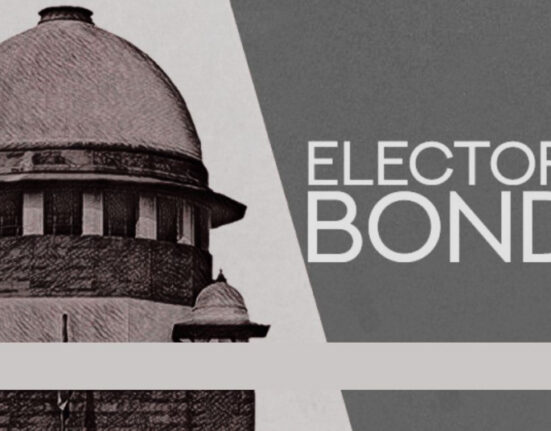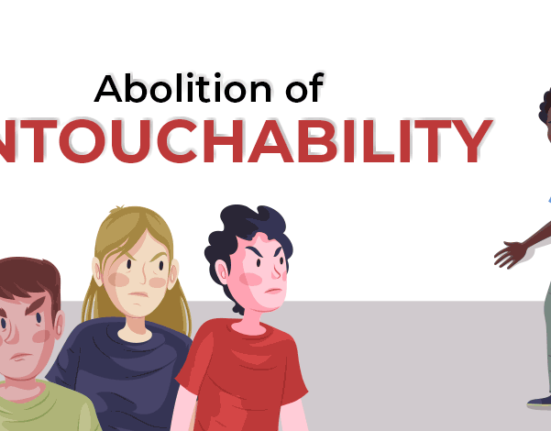This article, “Shah Bano vs Mohd Ahmed Khan: Paving the Way for UCC” is written by Shantanu Changmai
What is the Uniform Civil Code?
A Uniform Civil Code (UCC) is conceptualised as a set of laws that govern personal matters, including marriage, divorce, adoption, inheritance, and succession, for all citizens regardless of their religion. It aims to replace the existing diverse personal laws that vary based on religious affiliations.
When the Constitution was being drafted, there was a 150-year-long precedent of communities being governed by their respective personal laws. Acknowledging the impracticality of a comprehensive reform of these deeply entrenched systems in a single effort, the framers of the Constitution designated the Uniform Civil Code (UCC) as an aspirational objective, to be progressively realised over time.
Mentioned under Article 44 of the Part IV of the Indian Constitution, this is an integral part of the Directive Principles of State Policy but are not enforceable by courts as these are mere guiding principles for the state to be followed as per Article 37.
Pros and cons of Uniform Civil Code:
- Arguments made in favour of UCC:
In the very initial days of the founding of the Indian Constitution, the Constituent Assembly, especially Dr. B.R. Ambedkar, rooted for an effective application of UCC. But, given the circumstances of the society, the UCC was added to Part IV of the constitution rather than Part III, optimistically hoping for the legislature in the future to draft UCC permanently.
“It is perfectly possible that the future parliament may make a provision by way of making a beginning that the Code shall apply only to those who make a declaration that they are prepared to be bound by it, so that in the initial stage the application of the Code may be purely voluntary […] so that the fear which my friends have expressed here will be altogether nullified,” Ambedkar said in Constituent Assembly.
Since then, the courts of law often fortified their stance in favour of UCC. Cases such as the Mohd. Ahmed Khan v. Shah Bano Begum, Jordan Diengdeh v. S.S. Chopra, and Sarla Mudgal v. Union of India has been pivotal for the insistence of application of an UCC in the country.
Recently the BJP led central government pushed the requirement of an UCC in the country and their desire and vision to apply the same, mentioning it specifically as one of their prior agenda in their manifesto since 2014 itself, yet has been unsuccessful yet.
- Arguments made not in favour of UCC:
While the government and courts overtime have expressed their support as a push towards an UCC, there have been several dissenting opinions as well.
The 21st Law Commission of India, chaired by former supreme court judge Balbir Singh Chauhan, made statements contrary to it. The commission stated that UCC is not a necessary status quo and rather reforms have to be made in personal laws instead, making sure the sentiments of the respective law boards are not dampened while making the laws equal for all.
“Cultural diversity cannot be compromised to the extent that our urge for uniformity itself becomes a reason for threat to the territorial integrity of the nation.,” the commission added.
Views and aspects on the concept of Maintenance of wives:
The concept of maintenance of wives can be viewed from various perspectives, and its classification as progressive or not depends on several factors including legal, social, and economic contexts. Here are some points to consider:
- Progressive Aspects:
1. Gender Equality and Economic Balance:
– Historically, many legal systems introduced spousal support to protect economically disadvantaged spouses, typically women, who might have sacrificed career opportunities for family and child-rearing responsibilities. Ensuring maintenance can be seen as promoting gender equality by recognizing the non-monetary contributions to a marriage.
2. Support During Transition:
– Maintenance can help spouses transition to single life, providing financial stability as they adjust, potentially re-enter the workforce, or pursue further education. This support can be crucial for those who might otherwise face economic hardship post-divorce.
3. Recognition of Domestic Contributions:
– It acknowledges the value of unpaid domestic labour and caregiving, roles often filled by women, ensuring that these contributions are considered in the economic settlement of a marriage.
- Conservative Aspects:
1. Traditional Gender Roles:
– Maintenance laws can sometimes reinforce traditional gender roles, where women are viewed as dependent on their husbands for financial support, rather than as equal economic partners. This can be seen as perpetuating outdated notions of gender roles within marriage.
2. Dependency Concerns:
– Critics argue that spousal support might discourage self-sufficiency, creating a dependency on the ex-spouse rather than encouraging economic independence and personal growth.
- Modern Trends:
1. Gender Neutrality:
– More contemporary approaches to spousal support are becoming gender-neutral, recognizing that either spouse, regardless of gender, may be entitled to support depending on the financial dynamics of the marriage.
2. Temporary vs. Permanent Support:
– There is a trend towards temporary support, aimed at helping the lower-earning spouse become self-sufficient within a reasonable period. This approach balances the need for support with the encouragement of independence.
3. Income Disparity Considerations:
– Modern legal systems increasingly consider the income disparity between spouses and the potential for future earnings, rather than automatically awarding maintenance based on traditional assumptions.
The maintenance of wives, or spousal support, can be seen as progressive in contexts where it promotes economic balance, recognizes non-monetary contributions, and provides necessary support during transitions. However, it can also be viewed as conservative if it perpetuates dependency and traditional gender roles.
Facts of the Shah Bano case:
Shah Bano, who married her husband in 1932 and became a mother, never anticipated seeking justice in court. After her husband divorced her in 1978, leaving her and their children destitute, she felt compelled to file a petition for maintenance under Section 125 of the Criminal Procedure Code, 1973. Under Muslim Personal Law, a husband is required to provide maintenance only during the Iddat period. The Magistrate initially ordered the husband to pay a paltry sum of 25 rupees for her maintenance. Dissatisfied with this ruling, Shah Bano decided to take further legal action, leading her husband to appeal for revocation. This case ultimately became a landmark decision concerning the maintenance rights of wives, children, and parents under Section 125 of the CrPC, 1973.
Period of Iddat:
The Iddat period is observed by a Muslim woman after separation from her husband, either due to death or divorce. It is also known as the “period of re-attaining purity for the woman. “During Iddat, the woman is prohibited from marrying another man. If the separation is due to talaq, it can be revoked if the husband and wife agree or engage in consensual intercourse during the Iddat.
The different time periods supposed are:
- Marriage has been Consummated:
In case of consummation during the marriage, the woman is expected to observe Iddat for a period of three months. And if the woman becomes pregnant during the Iddat period, she must observe Iddat until she gives birth.
- Marriage has not been Consummated:
A divorced wife is not required to observe iddat where the marriage has not been consummated.
- Questions in front of the court:
- Whether Muslim women have the right to maintenance by her husband upon divorce, beyond the iddat period, as per Section 125 of Crpc?
- What can be the possible solution when personal laws and common laws conflict? What has to be prioritised?
- Petitioner’s argument:
The petitioner, Mohd. Ahmed Khan, argued that he shall not be obligated to pay for his ex-spouse’s maintenance post-Iddat period. His arguments were supported by the All India Muslim Personal Law Board and further argued that the court had no power to decide on the cases under their personal law as it is governed by the Muslim Personal Law (Shariat) Application Act, 1937.
- Respondent’s argument:
While the respondents, Shah Bano, remained firm on her stance, asking for appropriate legal maintenance for Muslim women under Section 125 of Crpc, she quoted two cases to serve her stance stronger. The cases of Bai Tahira v. Ali Hussain Fidalli Chothia (1979) and Fazlunbi v. K. Khader Vali (1980), where the court clarified the application of Section 125 of the Code to Muslim women. The court stated that this section applies equally to Muslim women.
Judgement of the court:
The court unanimously agreed in favour of the respondent and recognised Muslim women and their right to claim maintenance from their ex-husband under Section 125 of CrPc, 1973.
The bench stated that payment of Mahr or Dower by the husband does not necessarily mean that the man no longer holds any responsibility towards his ex-wife and children, if any. It certainly does not exempt the husband from paying maintenance to his wife and hence shall be obligated.
In case of an overlap of personal laws and common laws, here CrPc, the common laws shall be prioritised in order to prevent any kind of further possible discrimination against an individual.
‘Right to Maintenance’ by the wife shall not be discriminated against and even Muslim women have equal claim on it. The husband is obligated to deliver until the woman remarries or else this would inflict deep mental, social, and fiscal stress on the woman, the court added.
The court also escalated the need to effectively bring in the Uniform Civil Code (UCC), as a solid attempt to avoid such conflict of laws in the future, also mentioned in the Article 44 of the Indian constitution.
Aftermath of the decision:
The Shah Bano case is considered as one of the most impactful landmark judgements in the history of judiciary and its unequivocally role in ensuring equality to the citizens of the country.
However, The All India Muslim Personal Law Board was unhappy with the court’s decision resulting in massive protests in which they believed that the judgement was violative of the Sharia Law and contrary to the Muslim Personal Law, as a result of which, the Muslim Women (Protection of Rights on Divorce) Act, 1986 was enacted. This act however, is in contrast to the judgement of the court in the Shah Bano case.
The said act allowed the husband to only pay the sum of maintenance of his ex-spouse till the Iddat period. This was again further challenged in another landmark case of Daniel Latifi v. Union of India (2001).
- Judgement on Daniel Latifi v. Union of India (2001)
A Muslim husband is obligated to provide maintenance to his wife beyond the iddat period following a divorce, and he must also ensure fair and reasonable provisions for her future maintenance. The court ruled that if the wife is unable to support herself after the iddat period, it becomes the responsibility of the husband’s relatives to maintain her. She can apply for this support under Section 4 of the Act. If the relatives are unable to provide for her, the duty then falls to the Wakf board. This arrangement aims to balance personal laws with the rights of divorced women to seek maintenance, thus upholding the Act’s validity. However, the Act conflicted with a prior Supreme Court judgement, rendering that judgement inapplicable. The Supreme Court clarified the issue in Daniel Latifi v. Union of India, asserting that Muslim women are entitled to maintenance beyond the iddat period if they cannot maintain themselves.
- Jubair Ahmad v. Ishrat Bano, 2019
In the following case, the Allahabad court upheld the ruling in the Daniel Latifi v. Union of India (2001) case where it further stated the right to maintenance as an absolute right.
The court stated that Section 125 is arguably one of the most inclusive laws and its integrity primary intent and vision shall not be biassed or measured against any personal laws.
“‘section 125 is not a community-centric or religion-centric law, and perhaps the most secular enactment ever made in the country.”, the court added.
Conclusion:
This paper discussed the aspects of UCC, its needs, arguments, and dissent, especially throwing light on the concept of maintenance of wives in regard to several landmark judgments which has paved the way for it.
Women were often subjected to exploitation, and these were instances where Muslim women began to assert themselves and fight for their rights. The aforementioned cases represent a significant step towards the judicial practice of interpreting personal laws. Although these cases sparked protests and controversy, they also led to the enactment of legislation aimed at protecting the rights of Muslim women. The legal position of these women was subsequently clarified and settled by the court.
Works cited:
https://indiankanoon.org/doc/139688509
[i] AIR 1985 SC 945







Leave feedback about this